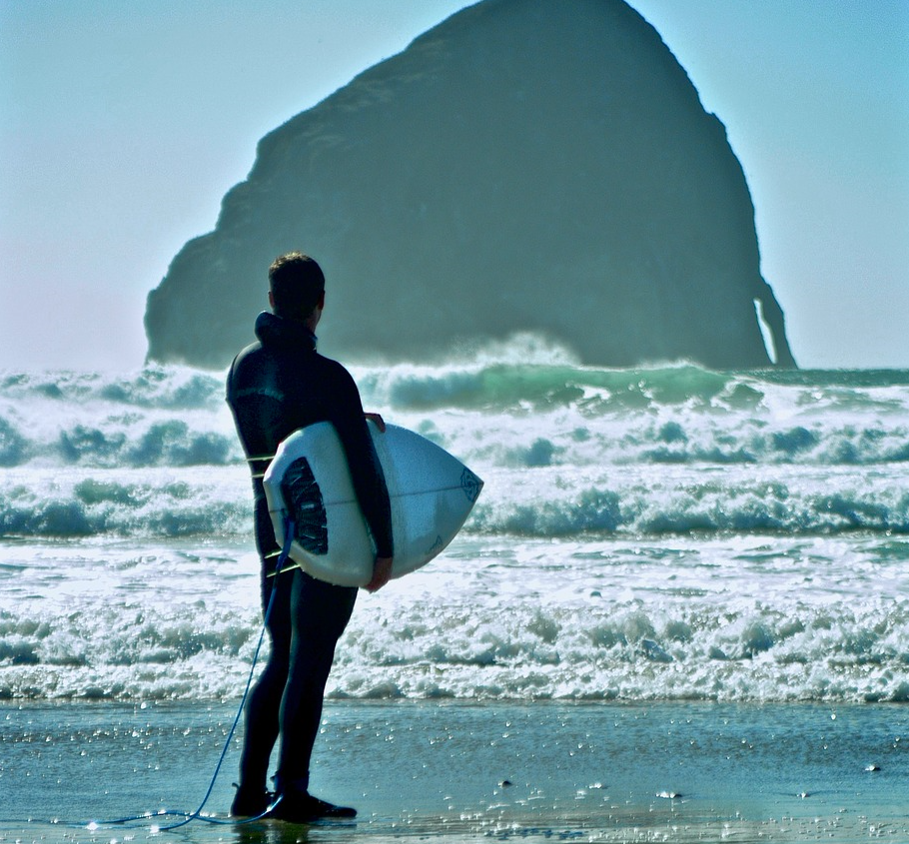
Surfing: Riding the Waves of Adventure and Connection with the Ocean
Discover the exhilarating world of surfing and experience the thrill of riding the waves. Learn about the origins of surfing, essential surfing techniques, and the joy of connecting with the ocean. Explore popular surfing destinations, surfboard types, and the benefits of this exciting water sport. Dive into the surf culture and embrace the freedom and harmony that surfing offers.
Introduction:
Surfing is more than just a water sport—it’s a way of life, a thrilling adventure, and a profound connection with the ocean. Originating in ancient Polynesia, surfing has evolved into a global phenomenon, captivating individuals of all ages and backgrounds. From the moment you catch your first wave, you’ll be hooked on the adrenaline rush and the sense of freedom that surfing provides. In this article, we will delve into the exciting world of surfing, exploring its history, techniques, destinations, and the unique culture that surrounds it.
Outline Table:
| Heading |
|---|
| 1. The History and Origins of Surfing |
| 2. Essential Surfing Techniques |
| 3. Surfboard Types and Equipment |
| 4. Surfing Destinations |
| 5. Surfing Safety and Etiquette |
| 6. Benefits of Surfing |
| 7. Surf Culture and Lifestyle |
| 8. Surfing Competitions and Events |
| 9. Environmental Awareness in Surfing |
| 10. FAQs |
| 11. Conclusion |
The History and Origins of Surfing:
Surfing has deep roots in Polynesian culture, where it was a sacred art form and a way to connect with the ocean and deities. Over time, surfing spread to various parts of the world, eventually gaining popularity as a recreational sport. Today, it continues to embody the spirit of adventure and the profound connection between humans and the sea.
Essential Surfing Techniques:
Mastering fundamental surfing techniques is essential for enjoying the sport safely and effectively. From paddling and positioning on the board to popping up and riding the waves, learning proper techniques enhances your ability to catch and ride waves with control and style.
Surfboard Types and Equipment:
Surfboards come in various shapes and sizes, each designed for specific conditions and skill levels. From traditional longboards to high-performance shortboards and everything in between, choosing the right surfboard is crucial. Additionally, surfers require essential equipment such as leashes, wax, and appropriate attire to ensure comfort and safety in the water.
Surfing Destinations:
Surfing destinations around the world offer incredible opportunities to ride world-class waves and experience diverse coastal landscapes. From renowned breaks in Hawaii, California, and Australia to hidden gems in Indonesia, Costa Rica, and Portugal, surfers have a vast array of choices when it comes to finding the perfect wave.
Surfing Safety and Etiquette:
Prioritizing safety and practicing proper surf etiquette is essential to create a positive and harmonious surfing environment. Understanding the rules of the lineup, respecting other surfers, and being aware of potential hazards such as currents and reefs contribute to a safer and more enjoyable surfing experience.
Benefits of Surfing:
Surfing offers numerous physical, mental, and emotional benefits. It is an excellent form of exercise that engages the entire body, improves cardiovascular health, and enhances balance and coordination. Surfing also promotes mental well-being, reduces stress, and instills a sense of freedom and connection with nature.
Surf Culture and Lifestyle:
Surfing has a rich and vibrant culture that extends beyond the act of riding waves. It encompasses art, music, fashion, and a deep appreciation for the ocean. Surfers embrace a laid-back lifestyle, valuing simplicity, environmental stewardship, and the pursuit of adventure and personal growth.
Surfing Competitions and Events:
Surfing competitions showcase the incredible talent, skill, and artistry of surfers on a global stage. From the World Surf League (WSL) Championship Tour to local and regional contests, these events celebrate the sport’s dynamic nature and provide a platform for athletes to push the boundaries of performance.
Environmental Awareness in Surfing:
Surfers have a unique connection with the ocean and often become passionate advocates for environmental conservation. Recognizing the fragility of marine ecosystems, surfers engage in initiatives such as beach clean-ups, plastic reduction campaigns, and supporting organizations dedicated to preserving our oceans.
FAQs (Frequently Asked Questions):
Q: Can I learn to surf as an adult?
A: Absolutely! Surfing is a sport that can be enjoyed at any age. Many surf schools offer lessons specifically designed for adults, catering to different skill levels. With patience, persistence, and the right instruction, adults can learn to surf and experience the joy of riding waves.
Q: Do I need to be a strong swimmer to surf?
A: Being a strong swimmer is beneficial for safety while surfing. It’s important to have the ability to swim confidently and comfortably in open water, as well as knowledge of ocean currents and tides. Taking swimming lessons or improving your swimming skills can greatly enhance your overall surfing experience.
Q: Can I surf in cold-water regions?
A: Yes, surfing can be enjoyed in cold-water regions as well. With the appropriate wetsuit or drysuit, surfers can comfortably ride waves in colder climates. It’s important to choose the right thickness and material for your wetsuit based on the water temperature to ensure warmth and protection.
Q: Is surfing a dangerous sport?
A: Like any sport, there are inherent risks in surfing. However, with proper education, awareness, and adherence to safety guidelines, the risks can be minimized. It’s crucial to understand ocean conditions, respect your limits, and be aware of hazards such as rip currents and local surfing regulations.
Q: Can I surf if I live far from the coast?
A: While living near the coast provides easy access to surf breaks, it’s still possible to surf if you live far from the coast. Planning trips to surf destinations, joining surf camps or clubs, or utilizing artificial wave parks offer opportunities for inland surfers to indulge in the sport.
Q: Is it necessary to have surfboard repair skills?
A: Having surfboard repair skills can be beneficial for minor repairs, such as fixing dings or replacing fin plugs. However, professional surfboard repair services are available in most surf communities and can handle more significant repairs or maintenance.
Conclusion:
Surfing is an exhilarating and deeply rewarding pursuit that allows individuals to connect with the ocean’s energy and experience a sense of freedom like no other. From mastering the art of riding waves to immersing oneself in the vibrant surf culture, surfing offers a unique blend of physical activity, mental rejuvenation, and a profound connection with nature. So grab a board, paddle out, and ride the waves of adventure, harmony, and personal growth that surfing provides.

